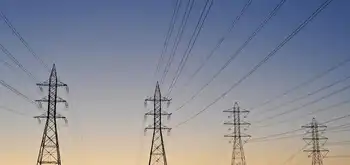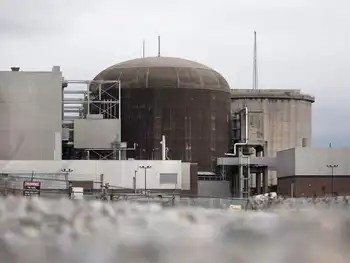State seeks to slash mercury emissions with new rules
By The Morning Call
Protective Relay Training - Basic
Our customized live online or in‑person group training can be delivered to your staff at your location.

- Live Online
- 12 hours Instructor-led
- Group Training Available
The DEP asked the Environmental Quality Board, the independent panel that considers changes to state environmental rules, to allow it to develop a plan to slash mercury emissions.
The request follows a petition filed last year by PennFuture, a statewide environmental advocacy group, asking for a 90 percent reduction in mercury emissions.
PennFuture's petition sought rules similar to those adopted last year in New Jersey - the toughest in the nation.
DEP agrees state standards are needed, but has yet to determine whether it will follow New Jersey's lead or stick with the federal Environmental Protection Agency's new standard of a 70 percent reduction.
Pennsylvania is second only to Texas in mercury pollution in its air, waterways and waste products, according to DEP spokesman Kurt Knaus. The state's 39 coal-fired power plants account for 77 percent of the mercury emitted into the state's air, he said. Allentown utility giant PPL Corp. has coal-fired units at three facilities in Pennsylvania, including two aging units at its Martins Creek plant that will close in 2007.
DEP believes EPA's regulations, adopted in March, won't work in Pennsylvania. EPA seeks a 70 percent reduction of emissions by 2018, a timetable that DEP believes is far too long. Instead of requiring every power plant to reduce its emissions, EPA will allow those that can't meet the 70 percent reduction to buy "allowances" from plants that have exceeded the reduction.
Knaus argues that a "cap-and-trade" approach won't work. He said mercury doesn't dissipate, but remains concentrated in areas where it is emitted. Using a trade from another plant won't help areas with high levels of mercury, he pointed out.
Pennsylvania and a dozen other states are so convinced no allowances should be given that they filed a lawsuit to stop EPA's rules from going into effect.
Samuel Wolf of the New Jersey Department of Environmental Protection said mercury emissions pose "a huge health threat."
After it is emitted from a smokestack, mercury falls back to Earth in rain and is absorbed by plants and eventually eaten by fish and animals and ultimately humans.
In adult humans, high doses of mercury can damage the nervous system. Pregnant women and their fetuses are at the greatest risk from exposure.
In Pennsylvania, mercury has already tainted the aquatic food chain. In 2001, the Pennsylvania Fish and Boat Commission issued a statewide advisory for fish consumption, urging people to eat most species of locally caught fish only once per week, according to commission spokesman Dan Tredinnick.
Knauss said it's feasible for energy producers to meet tougher emissions standards. Four new plants planned in Pennsylvania will exceed a 90 percent reduction standard.
As far as older plants go, he said, they are already required to add technology to remove nitrogen oxide and sulfur dioxide as part of President Bush's Clear Skies initiative. Adding the technology to remove mercury would drive up costs by $1 million per unit, he said.
Energy producers say they are committed to reducing mercury, but don't think DEP's approach is the way to go. PPL spokesman George Lewis said the utility prefers a national policy.
Lewis said mercury emissions don't follow state boundaries. Thus, regulating plants in Pennsylvania won't stop mercury from drifting in from states with less strict rules.
In addition, Lewis said, it could cost more to operate a plant in Pennsylvania than in states that follow EPA rules.
To keep costs down, he said, PJM Interconnection, which oversees electricity production in 13 states, could ramp up production at facilities in states without tough rules, leaving Pennsylvania plants with reduced output.
"The plants that cost the least to generate electricity will be the ones run most often," he said. Despite what DEP says, Lewis said, the cap-and-trade approach would ultimately reduce mercury emissions. Lewis said owners of aging plants eventually find the cost of allowances overtake the cost of upgrades. In some cases, it makes more sense to shut plants down, particularly those with high emissions.
Lewis said PPL has yet to decide whether it would upgrade its two other coal-fired plants, in Montour and York counties, or seek allowances if EPA rules remain in effect in Pennsylvania.
DEP is hoping the Environmental Quality Board, a 20-member group of state Cabinet members, legislators and citizens, will agree as early as today to let it write new regulations. If it gets the go- ahead, DEP will have six months to draft new regulations. The Environmental Quality Board would then have to approve or reject the regulations.











